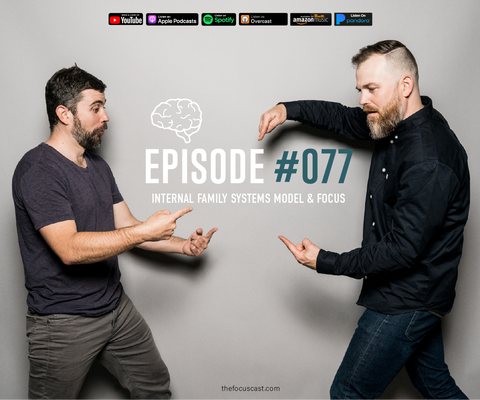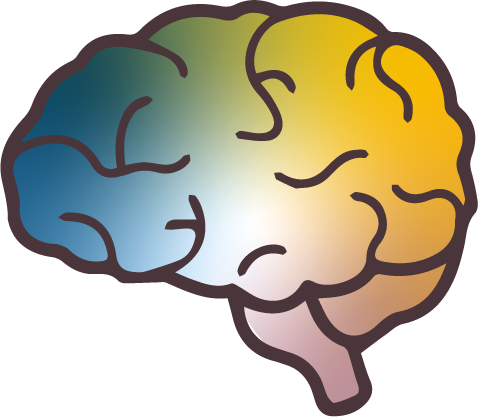
#77 Internal Family Systems Model
On this episode of The Focus Cast, we are talking about Internal Family Systems. Bryan (Co-Host) learned about this model from t he book, The Body Keeps The Score, during one of his therapy sessions. The model has provided some great insight into disassociation and how he has learned to cope.
TIME STAMPS
00:00 Intro to IFS Model
01:40 What is IFS Model?
04:00 How Dissociation Forms
08:26 IFS Types Broken Down
22:00 Parts of IFS
33:20 Understanding the Stress Hormones
40:30 The Question We Should Ask
Watch:
SHOW NOTES
Unveiling the Internal Family Systems Model: Discovering Your Inner Landscape
Introduction:
The Internal Family Systems (IFS) Model, developed by Richard Schwartz, offers a unique approach to therapy and personal growth. It views the mind as comprising various parts or "subpersonalities," and centers around the concept of the true self. In this blog post, we explore the IFS Model and its potential for self-discovery and healing.
The IFS Model: Understanding Your Inner Parts
The IFS Model recognizes three main types of parts within ourselves:
- Exiles: Young, vulnerable parts carrying emotional burdens, often kept isolated to protect us from overwhelming emotions.
- Managers: Proactive parts that control and stabilize our psyche, shielding us from the exiles' difficult emotions.
- Firefighters: Reactive parts that impulsively respond when exiles' emotions surface, using behaviors like excessive consumption or addictive habits.
Utilizing the IFS Model:
To achieve emotional harmony and well-being, it is essential to understand and integrate our different parts. Here are some common techniques used in IFS therapy:
- Parts Mapping: Identifying and mapping out the various parts within ourselves, gaining clarity about their interactions.
- Parts Dialogue: Engaging in a conversation with our parts, fostering understanding and integration.
- Unblending: Separating and distinguishing the different parts to recognize their distinct voices and characteristics.
Validity of the IFS Model:
Research supports the effectiveness of IFS therapy in reducing symptoms of anxiety, depression, and trauma-related disorders. A survey among IFS therapists showed high usage and positive outcomes in clients' symptoms and functioning.
Taking Action: Embrace Self-Discovery and Empathy
To benefit from the IFS Model, consider the following actions:
- Seek Professional Support: Consult with an IFS-trained therapist to guide your self-discovery and facilitate healing.
- Engage in Introspective Work: Read about the IFS Model and explore resources for deeper understanding. Introspective practices like journaling and meditation can aid self-discovery.
- Cultivate Empathy: As you uncover your own internal landscape, you'll increase empathy for others.
Unlocking the potential of the Internal Family Systems Model can lead to profound self-discovery, healing, and growth. Start exploring your inner landscape today.

Comments (0)
There are no comments for this article. Be the first one to leave a message!